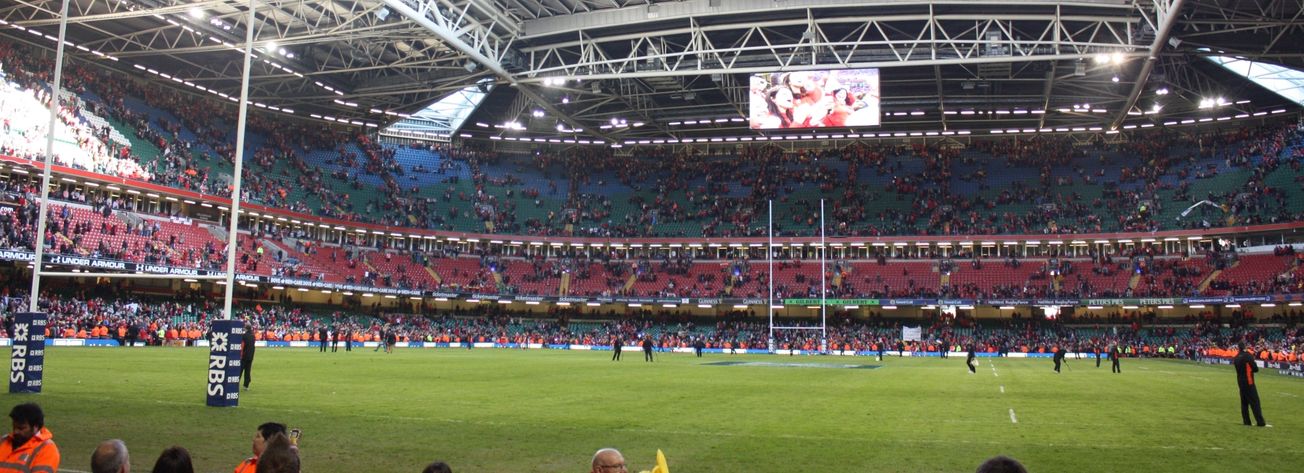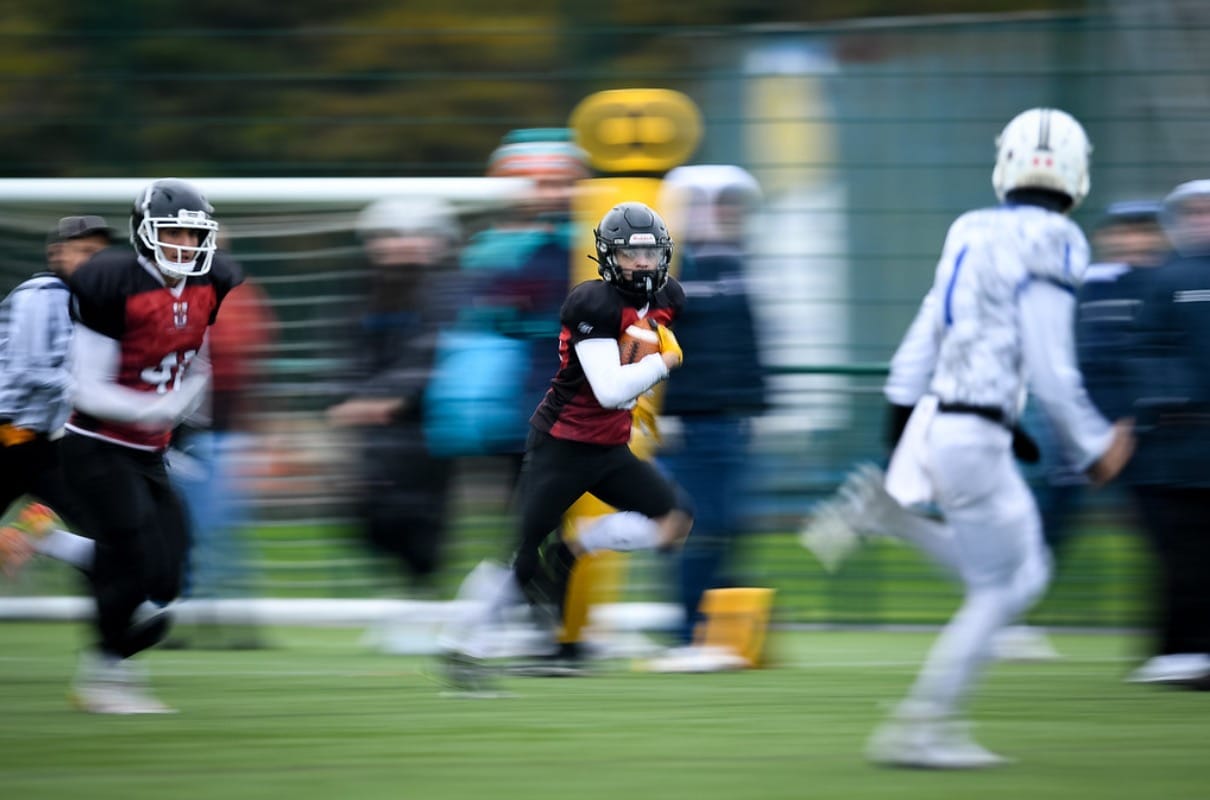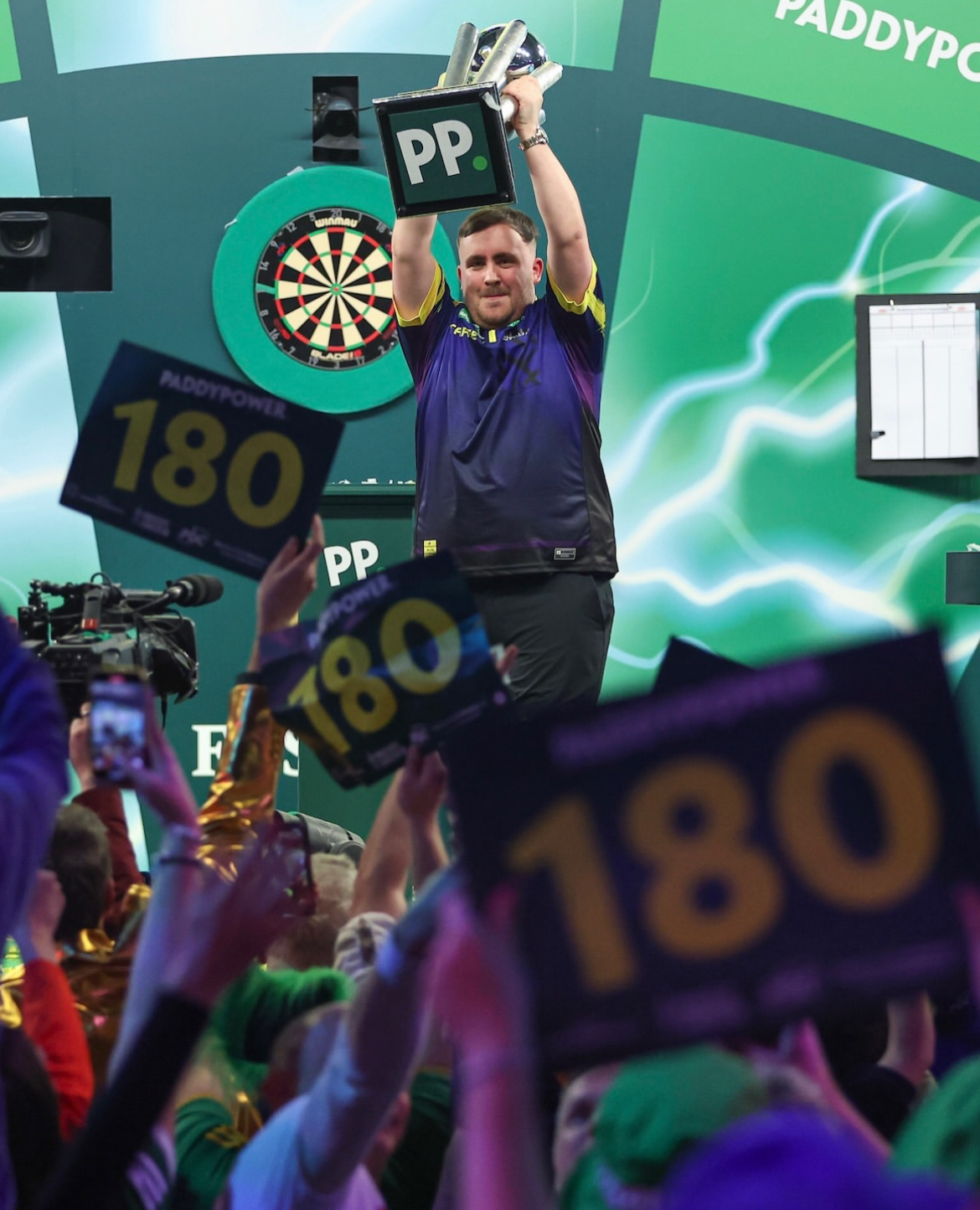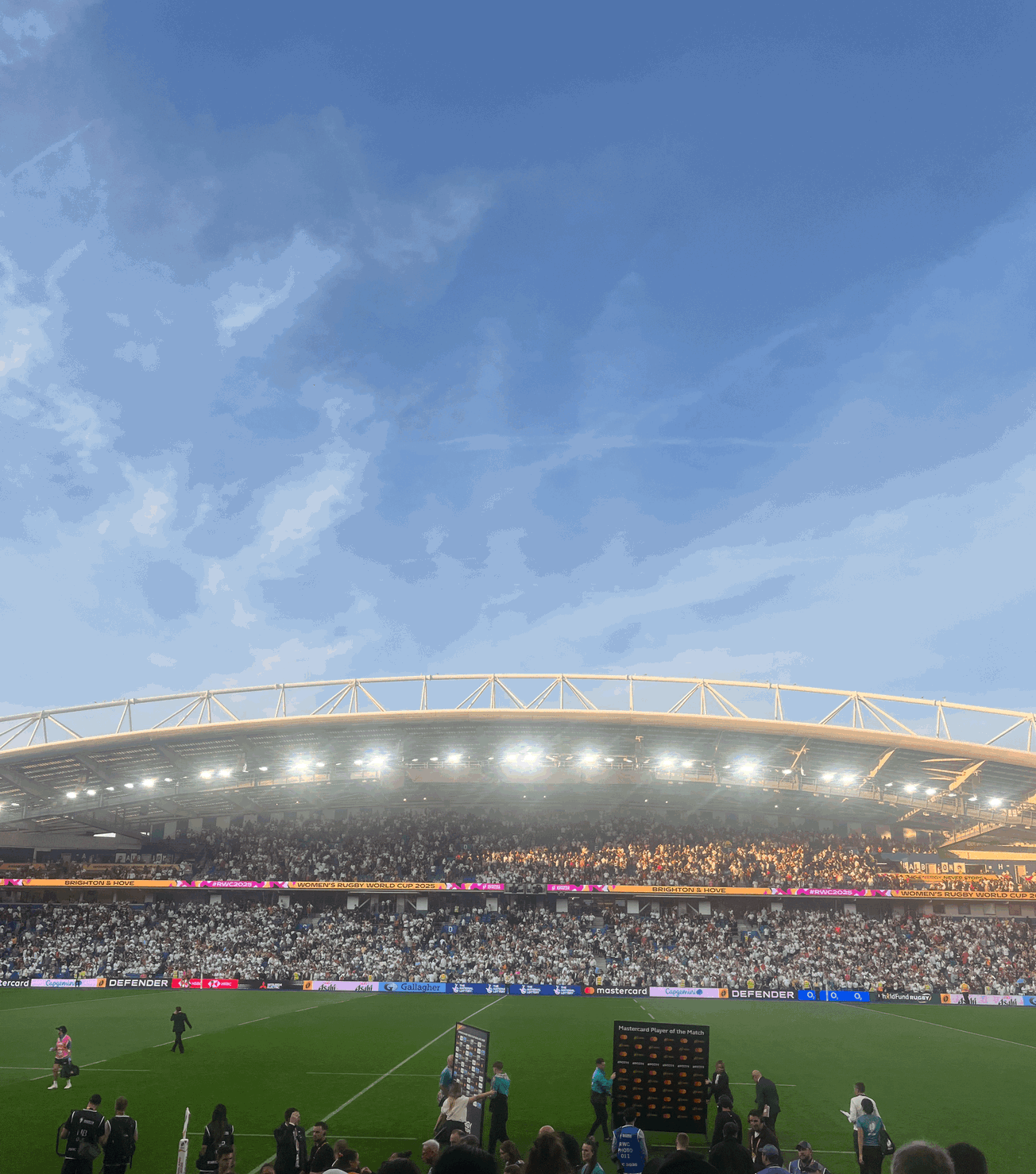By Nick Kramers, third year history
January exams are over, the days are drawing out, and we’re well and truly over Christmas. For Rugby fans up and down the country this means one thing; the rapid approach of the Six Nations.
The tournament pits neighbours in fierce competition against each other, divides families by their allegiance, and unites 5 countries in their hatred of England. The 2019 Six Nations has the added pressure of being the final competitive tournament before the fight for Rugby’s greatest honour, the William Webb-Ellis Trophy, at The World Cup in Japan this autumn. Here is an up-to-date evaluation of each teams’ foundations for the competition.
Which one of these Six will lift the trophy on March 16? #GuinnessSixNations pic.twitter.com/17VgrD2yaA
— Guinness Six Nations (@SixNationsRugby) January 26, 2019
Ireland:
Grand slam winners in 2018, undefeated in their autumn internationals, including a convincing 16-9 win against New Zealand, and tipped for another Grand Slam this year, Ireland come into this competition firing on all cylinders. With injury boosts in the return of Johnny Sexton, fellow vice-captain Peter O’Mahony, and talisman open side Sean O’Brien, Ireland will be playing their best rugby in time for the opening game against England.
Joe Schmidt’s 38 man squad announcement last week came with no surprises, in the forwards captain Rory Best and Leinster props Tadhg Furlong and Cian Healy will comprise the front row. The pack’s only significant absence is Ulster lock Iain Henderson with a thumb injury, but the Leinster pair of James Ryan and Devin Toner have been tearing it up in the Pro14 this year, so no concern there. It is in the back row that Ireland’s embarrassment of riches is most keenly shown: Schmidt will have the headache of picking between 5 of the world’s best breakdown specialists but is tipped to pick CJ Stander, Peter O’Mahony and the returning Sean O’Brien. Impact players Jordi Murphy and Josh Van Der Flier make the bench.
Connor Murray and World Rugby Player of the Year 2018 Johnny Sexton will be well equipped to exploit any opportunities with the assets of Stockdale, Earls, Kearney, and 2018’s stand out find Jordan Larmour fighting for places in the back three. The pure strength of Bundee Aki and Robbie Henshaw is capable of punching a hole in any line, with Gary Ringrose also flying for Leinster at outside centre.
Ireland’s squad depth is the envy of world rugby and it’ll take a mammoth performance from either England or Wales to overturn them this year.
Here's the Ireland squad for the opening rounds of @SixNationsRugby
— Irish Rugby (@IrishRugby) January 16, 2019
3 uncapped players and several 'tight calls' says Head Coach Joe Scmidt.#TeamOfUs #Ireland #ShoulderToShoulder #GuinnessSixNations pic.twitter.com/FbfH3jNS2G
England:
England will certainly be looking to do exactly that in Dublin on the 2nd of February, last year’s 24-15 defeat on home turf and the compounding embarrassment of finishing 5th with only two wins will be resonating with the players. Eddie Jones described his squad selection as his strongest yet, but with a number of notable absences it is hard to see the Red and Whites overcoming the Irish on home turf.
In the pack the noticeable absence of Dylan Hartley gives way to Jamie George starting, more of a concern are the injuries to Sam Underhill, Sam Simmonds, Chris Robshaw, and Brad Shields, all crucial members of the back row over the last year. The return of Billy Vunipola, and new Bristol Bear Nathan Hughes does bolster the row, but Jones will no doubt have to rely on one of Itoje or Lawes to fill in the blind-side jersey. England maintain a strong pack which has the ability to dominate set piece with George Kruis and Joe Launchbury, make crucial gain-line yards with Saracens trio Maro Itoje and Billy and Mako Vunipola, and compete fiercely at the breakdown.
Where England’s tournament will be decided is in the back line. If Eddie Jones and captain Owen Farrell can galvanise the pace of Eliot Daly, Johnny May and Jack Nowell, and the power of returning-to-form Manu Tuilagi and recently fit Jonathan Joseph, then England will be well set to pick apart any defence. Cockanasiga’s impressive break out performances in the autumn internationals will make him likely to start for Jones, who has also toyed with the idea of playing 9 forwards, Nowell as a flanker?
England’s long-suffering battle with fitness has also seen the lack of Bath wing Anthony Watson, however the strength and depth of the England squad, particularly in the back row, means they are not discounted from a title challenge, and could cause an upset in Ireland in the first round of matches. If England’s success against South Africa and strong performance against New Zealand in the autumn internationals are any barometer, England can certainly mount a successful campaign.
BREAKING | Your England squad for the 2019 #GuinnessSixNations 🌹
— England Rugby (@EnglandRugby) January 17, 2019
More here ➡ https://t.co/lj69XwYohv#CarryThemHome pic.twitter.com/ffuU5rI289
Wales:
Wales kick off the Tournament away to France in the Stade de France on Friday, and victories against South Africa, Australia, and Scotland put them in good stead to also challenge for the crown. Having the most important fixtures against Ireland and England both at the Millennium will fortify their challenge at the top.
In the forwards Warren Gatland has had to coordinate many injuries to name a largely changed squad from the one which did so well this autumn. In the Front row the combination of Nicky Smith, Ken Owens and Thomas Francis will lay a perfect foundation for set piece, and quick ball against the best of teams. With the Ospreys partnership of Adam Beard and captain Alun Wyn Jones also available, the scrum and lineout are going to be good platforms for this side. Ross Moriaty is recovering from concussion in time to fortify the back row, which has otherwise suffered from the exclusions of Dan Lydiate, Taulupe Faletau, Ellis Jenkins, and the retiring Sam Warburton, this could be a major weakness for Wales this tournament, they’ll be hopeful Navidi and Tipuric can remain fit and in form, although the nature of the majority of these injuries is short term and we could see a few faces re-enter the squad during the tournament.
In the back line there are considerable concerns for Wales, with Leigh Halfpenny missing the first week’s match against France. Gareth Davies at scrumhalf, Liam Williams at full back, and Scott Williams in the centres are also ruled out, luckily only for the first round of fixtures. Debate still remains over the number 10 position with Gatland recently favouring Cardiff Blue Gareth Anscombe over Dan Biggar, but the rest of the team fall into place, Hadleigh Parkes and Jonathan Davies making up the centres, and two of North, Adams, Amos or Holmes providing exceptional pace on the wings.
Wales can surmount a challenge to the recent trophies of Ireland and England this year. Having both of those fixtures at home and receiving a considerable boost to their squad from injury returns over the next two weeks will help considerably.
Day one in @SixNationsRugby camp ✅ pic.twitter.com/P0loMBYKnw
— Welsh Rugby Union 🏉 (@WelshRugbyUnion) January 21, 2019
France:
While the French football team had a stellar 2018, the rugby team did not, winning only two of their Six Nations fixtures, and one of three autumn internationals. Jacques Brunel will certainly be hoping his side’s fortunes can change this year, although it will be an uphill battle, he has managed to name an experienced squad with a minimal injury list.
In the pack French dominance at the foot of the scrum is secure with Louis Picamoles in excellent form for Montpellier, French breakdown work is best led by veteran captain Guilhem Guirado and Wenceslas Lauret. Les Bleus will miss Yoann Maestri, the Stade Francais lock, who is out for the whole tournament. The side is bolstered by the addition of Paul Willemse, the South African lock who qualifies to play for France through playing in the Top14 for 3 years.
French threat has often come from their backs distributing well and converting penalties. With the dynamic wingers Gael Fickou, Wesley Fofana, and Yoann Huget all fit Brunel has a wealth of resources, while they will miss star winger Teddy Thomas, there is still depth in the back three with Maxime Medard keeping Thomas Ramos from the starting 15 jersey. Camille Lopez and Morgan Parra return from injury lay-offs and they will surely slide into the starting team, coming in the 11th hour to provide some structure to the French back attack which benefits too from Basteraud’s resilient form and Doumayrou in the centres.
Now this case seems all quite damning for French hopes this tournament, but it is worth noting that excluding a white-wash series of New Zealand 3 of their 5 losses in 2018 were within 5 points, and that French clubs have been in excellent shape in the Champions Cup, Toulouse and Racing through to the final 8 in style.
For @FFRugby, the key to the #GuinnessSixNations will be in learning lessons from 2018 🇫🇷@guilhem_guirado doesn't want any more heartbreaking late defeats 💔 pic.twitter.com/cXCTvnXg8w
— Guinness Six Nations (@SixNationsRugby) January 25, 2019
Scotland:
Scottish preparation for their game against Italy comes in the wake of a series of bad losses in 2018, most notably losing to the United States. While at last year’s Six Nations Scotland managed to beat England, Italy and France, this series of bad results and an injury list of 20 capped players does not bode well for Gregor Townsend’s men.
The most notable absences from the forwards include hooker Fraser Brown, lock Richie Grey, and back rowers John Barclay, Hamish Watson, Blade Thomson, and David Denton. These 6 players have been central to Scotland’s structure and attack up front in recent years and massively dent the team’s threat at the breakdown and at set piece. Stuart McInally, Jonny Gray, William Nel and Ryan Wilson will be the experienced pillars of Scottish possession and attack.
In the back line things are looking considerably better for Scotland with Hogg, Kinghorn, Maitland and Seymour all fit in the back three, Finn Russell coming back from excellent form in France for Racing, and captain, scrum-half and kicker Greg Laidlaw firing well for Clermont in recent games. Huw Jones will again be central to the Scotts’ attack, and Peter Horne will most likely complete the back line. Duncan Weir, Duncan Taylor, and Byron McGuigan are the notable emissions from the backs, but Townsend will be thankful that he has his starting backline all fit at least.
Glasgow Warriors prop Jamie Bhatti has said in an interview with BBC Sport that the camp is on a high and that the belief is there that they can win their first ever Six Nations title. Scottish clubs are in exceptional form in Europe, with Warriors and Edinburgh both through to the last 8, and this alongside the inevitable rolling over of Italy in the first week could provide some much needed momentum for this side, and with a few returns from injury during the first few weeks of the tournament we could see a strong turn out for the Scots.
The squad are in good form as they head for the first training session of Guinness Six Nations camp! #AsOne pic.twitter.com/4iPQuK48kw
— Scottish Rugby (@Scotlandteam) January 21, 2019
Italy:
Italy’s six nations woes of recent have been consistent to say the least. Over the last 5 years Italy have won 1 game, against Scotland in 2015, and since joining the 5 nations in 2000 have managed a record high finish of 4th with two wins in 2013. With no major changes, upsets against the big five look unlikely.
The 2019 Six Nations campaign has been fraught with upset in the weeks leading up to the tournament. Veteran captain and international face of Italian rugby, Sergio Parisse, has said that the tournament will most likely be his last, giving a testimonial aspect to proceedings, and supplying the team with extra zeal to win. Conversely, coach Connor O’Shea has had to fight off speculation that his role is under fire, with many expecting that his departure will closely follow the close of the tournament. 18 players from Benetton comprise the bulk of the side, an unsurprising reward for their excellent form in the Pro14 this season, 3rd in conference B ahead of Scarlets and Ulster.
Italy will be without the crucial dynamism at rucks of Gloucester flanker Jake Polledri, and the steadfast reliability of Matteo Minozzi at 15 due to injury, but maintain the core of their squad. In the forwards the highly experienced faces of Sergio Parisse, hooker Leonardo Ghiraldini and prop Andrea Lovotti will provide a critical ballast to proceedings, each pivotal to Italy’s set-piece and ruck work. In their back line play will be manipulated by fly-half Tomasso Allen who has nailed a starting jersey with exceptional form for Benetton and his commanding role in previous Italian performances. A lot of the success of Italy at this tournament will come from his kicking and manipulation of his backs. The greatest assets at his disposal are Wasps winger Michele Campagnaro, often played at centre for Italy, and Benneton wing Tommaso Benvenuti.
Italy are owed an upset, and are a completely different force with the return of Parisse, while the chances are looking slim the foundation is there for Italy to be competitive.
💬 "The first game sets the tone"
— Guinness Six Nations (@SixNationsRugby) January 24, 2019
Fighting talk 👊 from @Federugby 🇮🇹 captain @sergioparisse #GuinnessSixNations pic.twitter.com/UOqP4PSIkO
Featured Photo - Flickr / Marc
Who are you picking to win this year's 6 Nations? Let us know!









